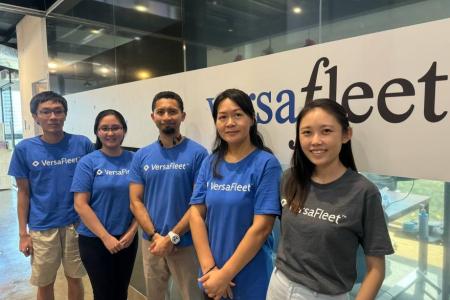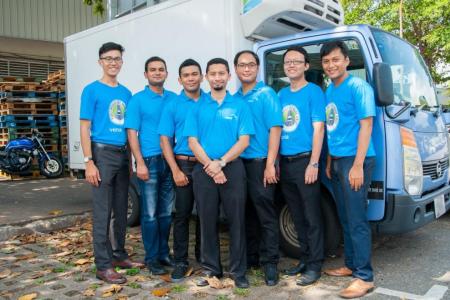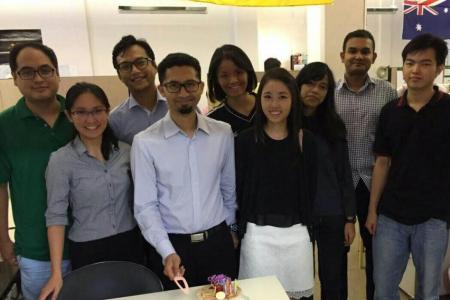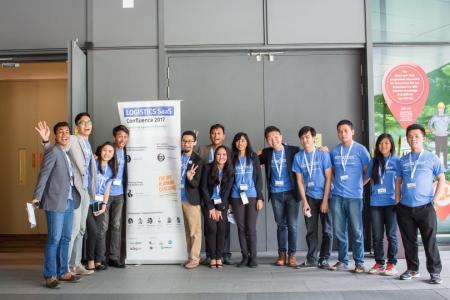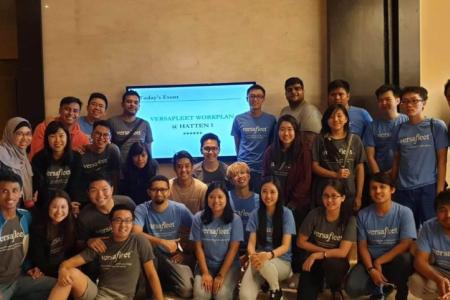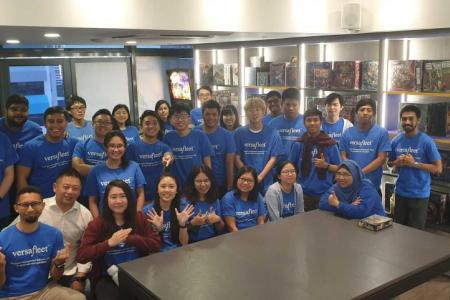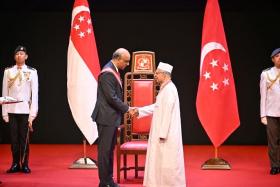Helping move 20,000 food packets daily during pandemic
This National Day, TNP showcases not-so-ordinary Singaporeans who chart success their own way
SHAMIR RAHIM, 42
VersaFleet founder
In today's fast-paced world, we expect things to arrive at our doorstep with a tap of a button. But behind the scenes, a complex network of logistics keeps Singapore running smoothly.
At the heart of this network is VersaFleet, a home-grown tech company streamlining last-mile logistics for businesses of all sizes.
VersaFleet's electronic proof-of-delivery system helps companies manage their entire delivery process – optimising routes, real-time tracking and ensuring drivers are equipped with the tools they need. This means faster deliveries, greater transparency, and ultimately, happier customers.
But for Mr Shamir, it's not just about efficiency; it's about empowering the often overlooked drivers who form the backbone of the logistics industry.
Tell us a little bit about yourself and what you do. What drew you to this path?
My dad started his own business in logistics after he grew fed up with corporate life. So my siblings and I helped him with the logo, name, ideas, we were his pioneering staff. I was 11 or 12 years old. We were happy to help out, moving things for clients, we did anything that would put food on the table.
I think that helped, seeing how the business grew from almost nothing. My dad was a senior executive at a Japanese shipping line, he started its Malaysia operations, so starting his own business was a bit of a step back. It was inspiring to watch him work on the business.
To this day, I don't take for granted the money in the bank or the food on the table.
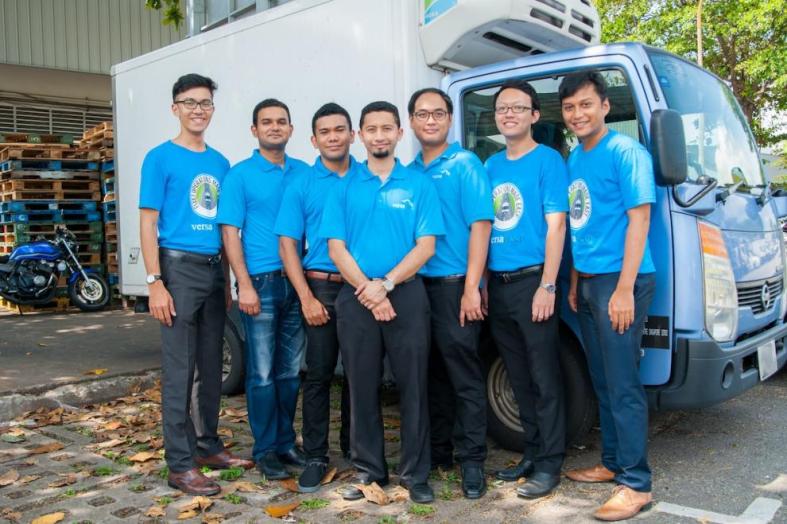
How I started the business was serendipitous. My dad’s business had a planning optimisation problem. I was writing some scripts to automate the process for him and it eventually became the enterprise software service product that we call VersaFleet.
What's the biggest challenge you face in your day-to-day work?
We would run into a cash crunch, sometimes for a few months at a stretch. It can be really trying.
I’d like to say you get used to it after a while, but every cash crunch is unique and you never know if you will come out of it or not, so it’s really up to us.

Now we’re doing alright. We have a board, we have board directors, board observers, we can… I won't say lean on, but at least try to tap my investors, VCs, angels.
They expect us to figure things out on our own. We learnt very quickly that we have to help ourselves. No one owes us a living.
What's the most rewarding aspect of your work?
There was once when we thought we had a great product, algorithms worked, the UI seemed fine. But I said: “No, no, no. We need a real customer who would pay to develop it for.” So about four or five of us pretty much camped out at this one office every day for a week or so to woo the company.

Every day was like a user acceptance test, constantly being asked "does this work, would you use this, how to click on this". But at the end, he paid for it, and he's still our customer today.
It is about lifting the logistics profession. It’s something that I think most people, including Singaporeans, take for granted. We order something online and it turns up at our door.
But behind that, there is a bunch of things going on that I think not enough of us appreciate. Things were more tedious when we started out, the drivers would go around with colourful carbon copies of the paperwork. Today, everything is digital.

So now with a phone, with our app, they can take pictures, they can mark statuses, tracking. We have customers that deliver medicine and they can do the last four digits of NRIC check, with the OTP on top of that. So there's very good protection for the drivers.
I think that's a big key difference that we made, really contributing to the lives of these Singaporeans who do the work that we don’t see.
What's a favourite Singapore memory you cherish?
The General Election was one. I mean, it’s the making of our government. And we didn’t just have front-row seats, we were helping run the command centre behind that and seeing all the election outcomes GRC by GRC was interesting.

A more recent one would be during the pandemic. During the circuit breaker period, there were a lot of healthcare workers who were really having it rough. There was a food security issue, they couldn’t cook or get food in time, and all the food courts were closed. So doctors and nurses would go back home tired and there was nothing to eat.
We worked together with Muis and Singapore Malay Chamber of Commerce and Industry, and VersaFleet was the command centre software. We coordinated delivery of up to 20,000 food packets a day. It felt like we were really making a difference.
What’s your favourite Singapore dish?
I would say prata kosong and egg with a side of teh tarik.
When my dad was relocated to Malaysia, he received an offer for a top job in one of the government-linked companies and it would come with citizenship for all of us.
Kudos to my parents, we were young and stupid, but they actually asked us: “What do you think? Do you want to be here? Here there is no NS, you’re bumiputra.” But after thinking about it, we decided to return to Singapore.
We could have had an easier life there.
When my brother and I got into NUS, we didn’t have enough savings to see us through. Luckily, there was the Mendaki Tertiary Tuition Fee Subsidy. Our mum said: "As Singaporean Malays, you’d better contribute. This government put you through school."
So I never stopped contributing. Even for the journey of the company, we are really a beneficiary of all the schemes that are designed for startups like us. I’m grateful for that.
In the Pledge, we talk about meritocracy, and we’ve seen criticisms of Michael Young’s original thesis around that. But the reality is there is no feasible alternative to meritocracy.
We need to broaden the definition of merit. I think it shouldn't be just educational qualifications. Merit shouldn't be: "You got more As than that guy, so he gets the job." We should get past that.
We should try to embrace level and depth of contribution as part of our notion of merit, perhaps view a person's contribution to society holistically. So my hope is that we grow and broaden our definition of merit to include that.
Get The New Paper on your phone with the free TNP app. Download from the Apple App Store or Google Play Store now

